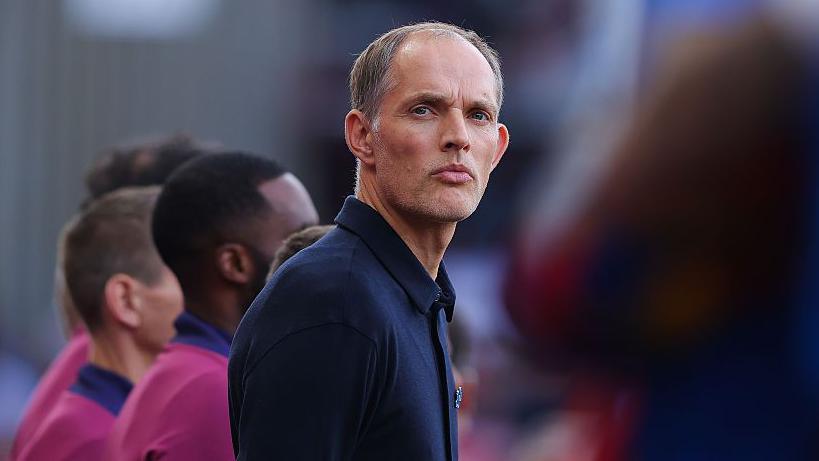Despite a less-than-convincing win against Andorra, Thomas Tuchel remains confident in England’s progress. He acknowledges the challenges of international management but believes the team is on the right path, focusing on building team chemistry and establishing a clear tactical approach. Former England defender Matt Upson suggests the nature of the opposition contributed to the uninspiring performance.
Thomas Tuchel has voiced his unwavering support for the direction England is heading under his leadership, despite a somewhat lackluster 2-0 victory over Andorra in a World Cup qualifier at Villa Park on Saturday. The win, secured through a Christian Garcia own goal and a Declan Rice header, keeps England's competitive record perfect under Tuchel, with four wins from four matches. However, a 3-1 friendly defeat to Senegal serves as a reminder that there is still work to be done.
While England's defense has been rock solid, conceding no goals in those four victories, the attacking displays have yet to truly ignite. The team has managed eight goals, but a genuinely dominant, eye-catching performance remains elusive. This has prompted questions about whether England are progressing as rapidly as hoped under the former Bayern Munich and Chelsea boss.
"We're getting there," Tuchel stated, acknowledging the need for continued development. He emphasized the differences between managing at the club level and on the international stage, highlighting the unique challenges of forging a cohesive team with limited time together. "There's a lot of learning for me. International football is so different to club football."
Despite these challenges, Tuchel remains optimistic about the future. "I'm absolutely convinced that we are on the right path," he affirmed. "We have three camps very close to show that we will create an identity and see who has a connection with who." His comments suggest a focus on building team chemistry and establishing a clear tactical approach as England prepares for future challenges.
The Andorra match itself drew mixed reactions. While the victory was paramount, the performance left some observers underwhelmed. England had previously faced Andorra in June, securing a narrow 1-0 win that drew criticism from Tuchel, who questioned his team's attitude. This time around, despite the improved scoreline, England's statistics were arguably less impressive, with fewer shots (11 compared to 20), fewer big chances (4-6), and fewer touches in the opposition box (41-52). Despite that, he believed his team played much better than in the reverse fixture.
Tuchel acknowledged these shortcomings but emphasized the importance of the second goal, which arrived in the 67th minute. He believes that an earlier goal would have unlocked the team's attacking potential and led to a more comfortable victory. "I liked the performance," Tuchel told BBC Radio 5 Live. "It was a good performance, a solid performance against a low block. The second goal came too late to play with maybe 100% freedom that is needed to score more. We created a lot of chances but didn't convert them."
He added: "We had to wait a long time for the second goal and then we had from the substitutions good energy and then we had the second goal and felt freedom. It was also a signal to the opponent that the game was over. In general with the effort and attitude I am totally satisfied and it was a much better performance than in June."
Former England defender Matt Upson offered a more nuanced perspective, suggesting that the nature of the opposition played a significant role in the uninspiring performance. "It is about how we deal with the circumstances and the circumstances are we were playing against a team who don't actually want to make this a game of football," he said. "When you have that in front of you, it will be uninspiring but that is not down to England's doing. It is just the nature of these matches. They are generally always the same."
Upson conceded that Tuchel is yet to oversee a truly memorable England display but argued that circumstances have often conspired against him. "I think that's fair," Upson added. "I think the one game we thought could have been more of a juicy game was Senegal, but we made nine changes and half the team was not available to be selected. That is kind of out of Tuchel's control. I think it has been hard for him to get together what he needs." With future challenges on the horizon, Tuchel will be eager to solidify his tactical vision and guide England to more convincing performances.
